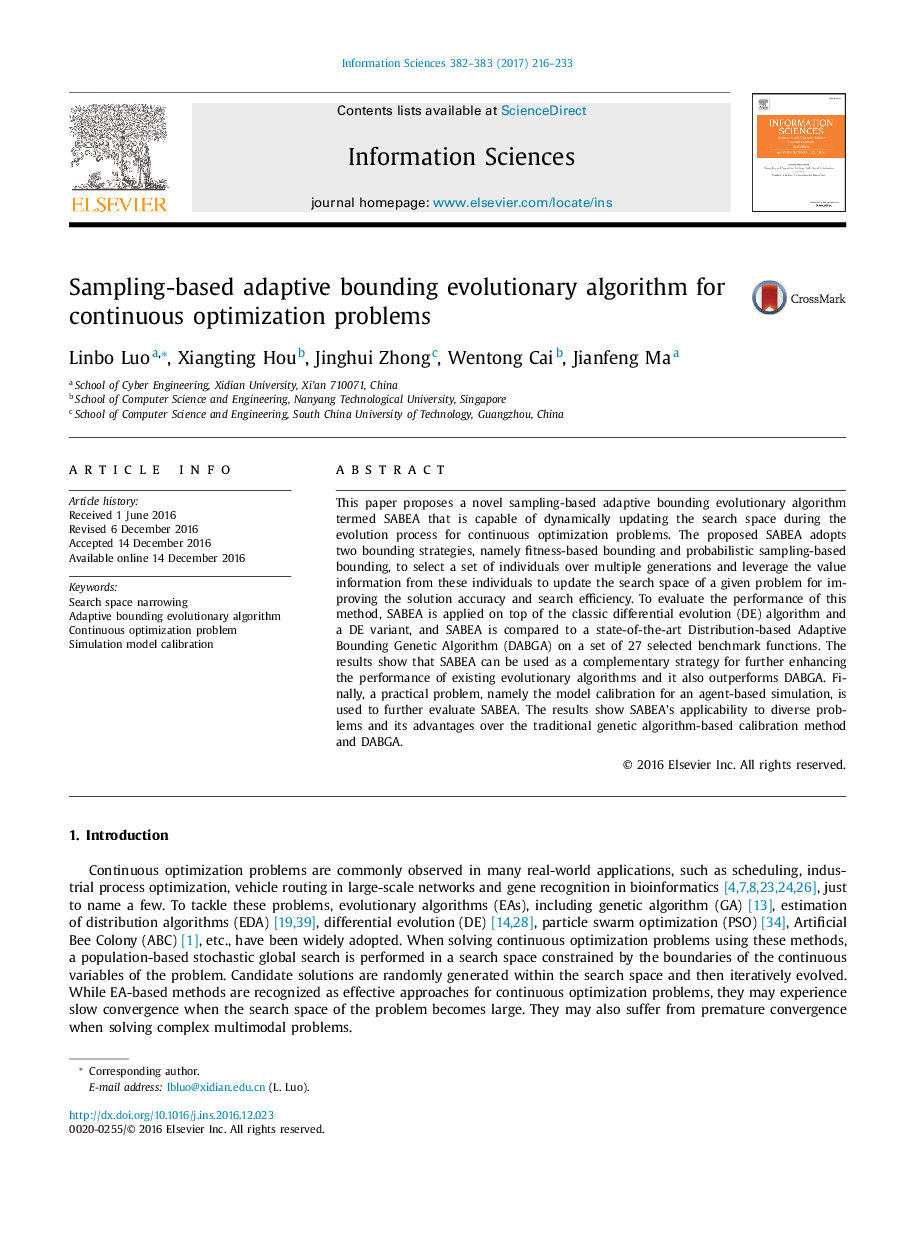ترجمه فارسی عنوان مقاله
الگوریتم تکاملی محدود سازگار برای نمونه گیری برای مشکلات بهینه سازی مستمر
عنوان انگلیسی
Sampling-based adaptive bounding evolutionary algorithm for continuous optimization problems
| کد مقاله | سال انتشار | تعداد صفحات مقاله انگلیسی |
|---|---|---|
| 150211 | 2017 | 18 صفحه PDF |
منبع

Publisher : Elsevier - Science Direct (الزویر - ساینس دایرکت)
Journal : Information Sciences, Volumes 382â383, March 2017, Pages 216-233
ترجمه کلمات کلیدی
محدود کردن فضای جستجو الگوریتم تکاملی محدود سازگار، مشکل بهینه سازی مستمر، کالیبراسیون مدل شبیه سازی،
کلمات کلیدی انگلیسی
Search space narrowing; Adaptive bounding evolutionary algorithm; Continuous optimization problem; Simulation model calibration;

